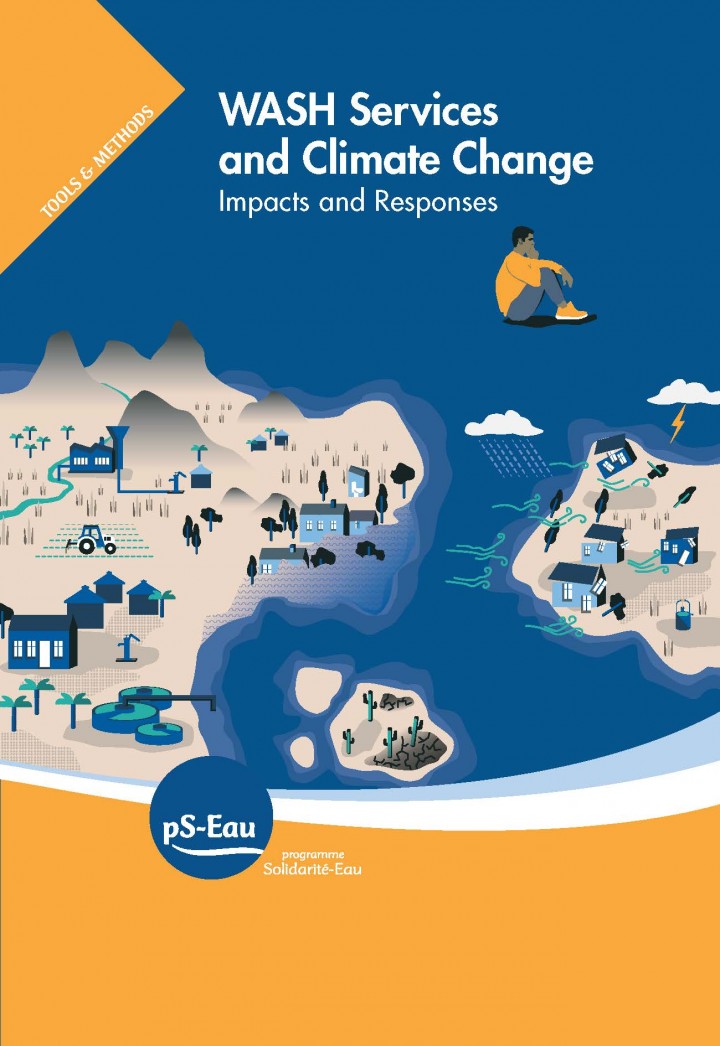WASH Services and Climate Change (in English and French) Impacts and Responses pS-Eau (2018)
Climate change and its impacts can be seen in many regions around the world and is having a major effect on the large water cycle, resulting in rising sea levels, disrupted seasonal rainfall patterns, a rise in average global temperatures, droughts, heatwaves and more frequent extreme weather events.
These climate-related hazards have repercussions for the availability and continuity of water and sanitation services. Existing vulnerabilities caused by population growth and urbanisation mean that the health, social and economic impacts can be amplified in a context of climate change, particularly in developing countries and for the poorest communities.
It is thus vital to take climate change and its impacts into account when developing water and sanitation services. This is especially urgent as inaction will increase future risks. To this end, adaptation and mitigation are two complementary approaches to tackling climate change that can be used to provide a range of responses for reducing the vulnerability of services.
A sound understanding of the climate risks and the health, social, environmental and economic impacts is required before taking action. This guide provides an overview of the issues, along with definitions and keys to understanding the main climate-related concepts, in order to help water and sanitation stakeholders integrate these aspects into their practices.
This publication is also available in French.
Bibliographic information
pS-Eau (2018). WASH Services and Climate Change (in English and French) Impacts and Responses Programme Solidarité Eau (pS-Eau), Paris, France
Filter / Tags
Renewable energies and climate change (WG3)Guidelines and manualsEnglishFrench
External links
More information on pS-Eau climate change page
Download here the publication: WASH Services and Climate Change. Impacts and Responses.

